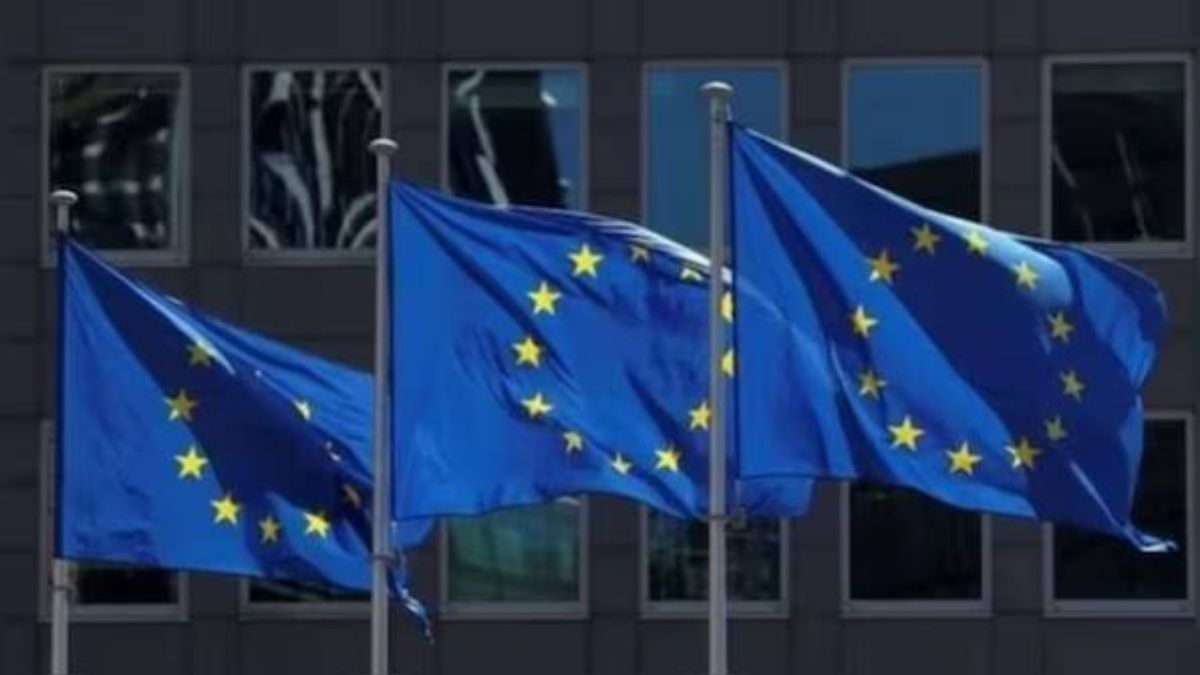The EU is exploring a plan to turn frozen Russian assets into a reparation loan for Ukraine, bypassing Hungary’s veto, to fund reconstruction and defence amid the ongoing Russia-Ukraine conflict.
The European Union is exploring an innovative financial mechanism to channel frozen Russian assets to support Ukraine without directly seizing the funds. According to report, the proposed “reparation loan” would provide Ukraine with billions of euros for reconstruction and defence while overcoming potential legal and political obstacles including vetoes from Hungary, a member state with pro-Moscow leanings.
Leveraging frozen assets for Ukraine’s benefit
According to report, approximately €210 billion ($250 billion) of Russian central bank assets remain immobilized in Europe following sanctions imposed after Russia’s invasion of Ukraine. Currently held as cash by Belgian securities repository Euroclear, these assets have generated modest returns.
The EU has proposed converting these assets into zero-coupon bonds issued by the European Commission, potentially guaranteed by a coalition of willing member states. This approach would allow for more profitable long-term investments, increasing returns for Ukraine. European Commission President Ursula von der Leyen highlighted that this loan would not involve seizing the assets but would be based on the cash balances associated with the frozen funds.
And Ukraine would repay the loan once it receives compensation from Russia for the damages inflicted during the war. This plan seeks to bypass Hungary’s potential veto by involving only those EU countries willing to participate.
Hungary’s position and EU’s strategic response
Hungary, led by Prime Minister Viktor Orbán, has maintained a neutral stance towards Russia, often opposing EU sanctions and military aid to Ukraine. This position poses challenges for EU initiatives requiring unanimous approval. To address this, the EU considers an intergovernmental agreement among member states willing to support the reparation loan, minimizing Hungary’s influence on the decision-making process.
Officials suggest that moving the frozen assets away from Euroclear would allow greater investment flexibility and higher returns, benefiting Ukraine’s financial needs. The EU aims to ensure that the funds are used effectively to support Ukraine’s reconstruction and defense efforts.
Broader implications and future prospects
The proposed reparation loan represents a crucial shift in EU financial strategy, utilising frozen assets for a purpose aligned with the EU’s values and objectives. It reflects a growing willingness to adapt financial instruments to geopolitical realities and humanitarian needs.
However, the plan’s success hinges on the cooperation of EU member states and the resolution of legal and political challenges. If implemented, it could set a precedent for using frozen assets in conflict resolution and post-conflict reconstruction efforts.
As discussions continue, the EU’s approach to utilising frozen Russian assets will be closely watched as a potential model for future international financial strategies in conflict zones.
Risks, rewards and Russian reaction
The assets in question, mostly accumulated interest and redirected deposits, total around €176 billion, with further growth expected as sanctions continue. The reparations loan scheme would only require Ukraine to repay money after Russian reparations are delivered, essentially linking future accountability for war damages to immediate aid.
Critics highlight legal gray areas and possible retaliation from Moscow. Belgium, for instance, has expressed reluctance to deploy the assets without clearer legal backing mindful of Russian claims and international precedent. Still, the urgency to channel aid—and Europe’s confidence that assets will remain frozen has paved the way for rapid policy evolution.
Russia, meanwhile, faces deepening economic pressure from spiralling war costs. In response, the Kremlin’s finance ministry is seeking to raise the value-added tax (VAT) from 20% to 22% by 2026, specifically to cover defence spending.
President Putin, who earlier promised no new tax hikes, now confronts a mounting budget deficit and slowing growth as the conflict endures. Analysts suggest the tax increase is a sign of “wartime budgeting,” highlighting the strains of financing war while the West considers using his government’s own frozen funds for Kyiv’s defence.
End of Article

)

